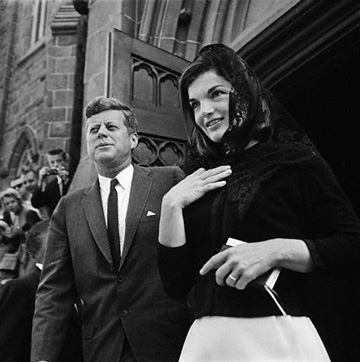First off, let me assure you I will not be writing an “April Fool” post today. As long as George Bush is in the White House, every day is April Fool’s Day in America.
Raw Story reports (via Gun Toting Liberal) that the Bush Administration’s fixation on privatization is causing long-term damage to our government.
Due to its increasing practice of contracting out to private firms and agencies, the U.S. government is quickly losing its expertise and competence in vital national security and defense programs, according to a Wall Street Journal report.
“Since the 2001 terrorist attacks and wars in Afghanistan and Iraq, the federal government’s demand for complex technology has soared,” writes by Bernard Wysocki, Jr. for the Journal. “But Washington often doesn’t have the expertise to take on new high-tech projects, or the staff to oversee them.
“As a result,” he continues, “officials are increasingly turning to contractors, in particular the hundreds of companies in Tysons Corner and the surrounding Fairfax County that operate some of the government’s most sensitive and important undertakings.”
The supposed superiority of private enterprise over public bureaucracy is a cornerstone of right-wing ideology. Privatization, along with tax cuts and deregulation, is one of the Right’s favorite knee-jerk answers to all of life’s problems.
Googling around this morning I came across the Reason Foundation’s Annual Privatization Report 2006: Transforming Government Through Privatization. Much of the “report” reads like alternative historical fiction; thanks to privatization, since 1990 government has been getting better and better, it says. Sure.
I particularly like this brilliant bit of satire called “Advancing Limited Government, Freedom, and Markets” by Mark Sanford, Governor of South Carolina. Here’s just the first two paragraphs —
Any read through history demonstrates how essential limited government is to preserving freedom and individual liberty. What life experience shows us is that limited government is equally important in both making your economy flourish and in enabling citizens to get the most for their investment in government.
Let me be clear up front that in the long run the only way to make government truly efficient is to make it smaller, and this seems to me to be the real clarion call in highlighting the importance of privatization efforts. Efficiency and government are mutually exclusive in our system, and if our Founding Fathers had wanted efficiency I suppose they would have looked more closely at totalitarian systems. They wanted not efficiency, but checks on power in our republic.
I don’t believe “efficiency” was much of an issue in the 18th century, but let’s continue — Gov. Sanford goes on and on about the glories of privatization and “marketbased solutions” for problems in education and health care. He uses the word freedom a lot, although he doesn’t explain how privatization and small government protect civil liberties. (I argue here that the “small government equals freedom” notion made sense before the Industrial Revolution, but not so much after. Righties are a tad slow.)
Let’s go back to Raw Story:
The number of private federal contractors has now risen to 7.5 million, which is four times greater than the federal workforce itself, the report indicates. Such a trend is leading the government to what Wysocki calls the “outsourcing [of] its brain.”
The shift to private firms has not been without its problems, however, with faulty work and government waste becoming rampant.
“Today, the potential pitfalls are legion,” writes Wysocki. “Big contracts are notorious for cost overruns and designs that don’t work, much of which takes place under loose or ineffective government scrutiny.” The outsourcing of these government programs “can be a prescription for enormous fraud, waste and abuse,” Rep. Henry Waxman (D-CA), chairman of the House Oversight and Government Reform Committee, is quoted as saying during a hearing.
Linda Bilmes wrote for Nieman Watchdog last year about the cost of the Iraq War.
Q. Why is this war so expensive?
One reason is the huge reliance on private contractors to do basic military tasks. … Contractors charge many times more than it would cost to have the military do the work. For example Blackwater Security, which provided security to the Coalition Provisional Authority, paid some of its security guards over $10,000 per week.
(For the past 30 years American business has been keen on outsourcing as a cost-saving measure, and in many industries all manner of functions that used to be performed in-house are now contracted out. This may work nicely in some circumstances, but in my experience companies pay — probably more than the CEOs realize — in inefficiency and loss of quality control. Someday they’ll figure this out, and the New New Trend will be insourcing. Just watch.)
There’s a book reviewed today in the NY Times called Radicals for Capitalism: A Freewheeling History of the Modern American Libertarian Movement by Brian Doherty, an editor at Reason magazine. The reviewer, David Leonhardt, is lukewarm about the book. I just want to quote this bit from the review:
Libertarianism has its roots in the writings of a pair of major 20th-century Austrian economists, Ludwig von Mises and F. A. Hayek. Both opposed economic planning and argued that only the forces of supply and demand could allocate re sources fairly and efficiently. If an item becomes scarce, its price will rise, ensuring that people who place the highest value on it — those who can use it most productively — will be able to get it. To this coolly economic argument, Rand and other writers added a moral one: laissez-faire capitalism equaled freedom.
This was a tough sell in the wake of the Depression and the war, but the ground began to shift in the 1970s. As the Vietnam War sputtered to a close and the economy stagnated, the wise men who built “big government†began to look ineffectual. In 1980, Ronald Reagan would win the presidency by campaigning on laissez-faire rhetoric. The day after his election, he was photo graphed on an airplane reading The Freeman, the flagship libertarian magazine, while Nancy Reagan rested her head on his shoulder.
In the nearly three decades since, libertarian arguments have enjoyed a nice run. Tax rates have been reduced; once-regulated industries have been opened to competition; any two consenting adults, including those of the same sex, can now marry in some places. One of today’s most fashionable political labels, “socially liberal and fiscally conservative,†Doherty shrewdly notes, is “the basic libertarian mix.â€
Actually, faith in laissez-faire economic policies as the key to salvation goes back to the 19th century; from time to time I rant about how “free market” ideology caused a million Irish to die in the Famine, which began in 1845. American history since the Civil War can be read as a tug-of-war between progressivism and the “free market” fetishists. When people get tired of being ripped off and exploited by the malefactors of great wealth, they turn to government for help. But sooner or later they forget being ripped off and exploited and get taken in by “free market” hype again. Thus the Gilded Age was followed by the Progressive Era, which was followed by the Roaring 20s (also called the Republican Era), which was followed by the Great Depression and New Deal. And when memory of the Great Depression had sufficiently faded, we got Ronald Reagan.
Like I said; every day is April Fool’s Day in America.

 Of all the dumb things to get worked up into a snit about, this one is almost as dumb as
Of all the dumb things to get worked up into a snit about, this one is almost as dumb as 




 I can’t say that Muslim women never wear a tied-under-the-chin scarf, but from what I see in photographs an actual hijab is usually wrapped rather than tied.
I can’t say that Muslim women never wear a tied-under-the-chin scarf, but from what I see in photographs an actual hijab is usually wrapped rather than tied.